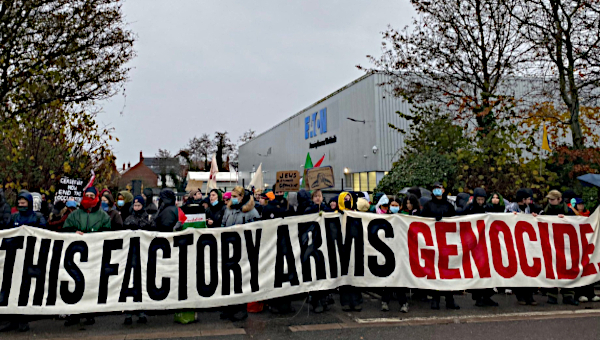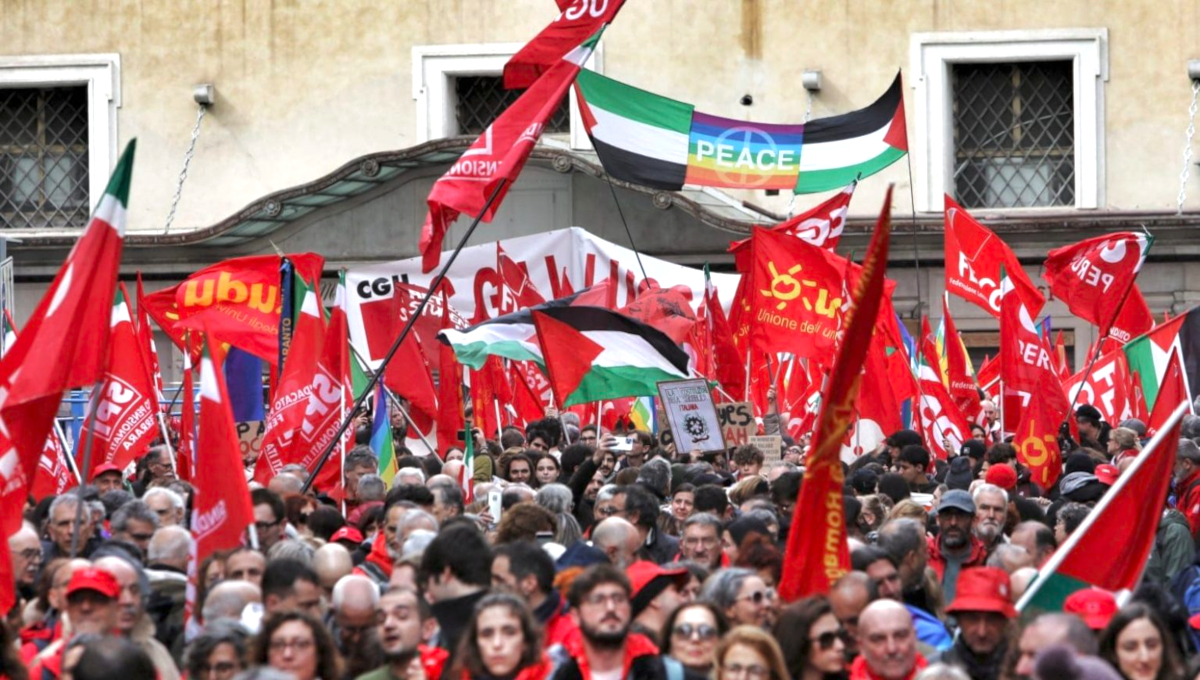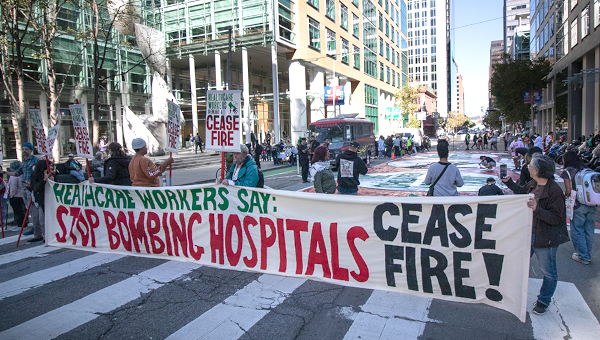Labour Leaders Must Advance BDS, or Step Aside
In his Prison Notebooks, Antonio Gramsci invokes the “Fable of the Beaver” to critique the political failings of party leaders who compromise their obligation to represent the classes that raised them up in order to placate existing structures of State power.
[The Fable of the Beaver:
The beaver, pursued by trappers who want his testicles
from which medicinal drugs can be extracted,
to save his life tears off his own testicles.]
Today, some labour leaders are falling into the same trap with their compromised positions on Palestinian liberation. Like the beaver, they politically castrate themselves to assure their own political survival in the short term, thus compromising the collective reproduction of our movements in the long term.
While some labour leaders have demonstrated principled and consistent stances on Palestinian liberation, others are obstructing the organizing of those workers whom they are appointed to represent. Delaying or diluting the implementation of Boycott, Divestment, Sanctions (BDS) motions – or flat-out refusing to enact them – are responses that remind us once again of why Martin Luther King viewed the [White] moderate as such a danger to collective liberation.

Genocide Is A Workers’ Issue
Globally, we have seen the political consequences of liberals who are elected to govern on a “centrist” platform, and who aim to retain power by compromising their more progressive policies to conciliate the right-wing. Such a politics never delivers change and succeeds only in ceding political ground to neofascists. Yet, labour leaders who decry the erosion of civil society amidst intensifying fascism, and who pressure their elected government representatives not to concede progressive values at the state level, fail to see that they replicate that same behaviour in their own leadership when they concede to a vocal but small number of right-wing union members.
When leaders reject BDS as a tactic that is “too divisive,” they not only dismiss the deep harm suffered by some of their members in favour of prioritizing others but also alienate the progressive base that is foundational to the advancement of their organization. These bourgeois capitulations are anti-democratic and, moreover, weaken the labour movement in our present moment of political crisis. If these leaders cannot advocate for Palestine, then they do not have a place advocating for workers’ rights.
Workers around the world have a long history of showing international solidarity with Palestinian workers who face daily abuses and the violation of their rights. Where labour contributes to, or is complicit with, Palestinian oppression, workers have retracted that labour, for example, by refusing to load “hot cargo” or by going on wildcat strikes. In October 2023, Palestinian trade unions issued an urgent call for international solidarity in the face of the assault on Gaza by the Israeli state. “We make this call in the belief that the struggle for Palestinian justice and liberation is not only a regionally and globally determined struggle. It is a lever for the liberation of all dispossessed and exploited people of the world,” they wrote.
Unions operate as democratic institutions, and leaders have an elected responsibility to represent their members. But, beyond any argument about democracy, trade union leaders are also responsible for adopting a principled stance and enacting serious political shifts consistent with the urgent demands of international solidarity in this current historical moment. If they are incapable of doing so, they need to step aside. •






